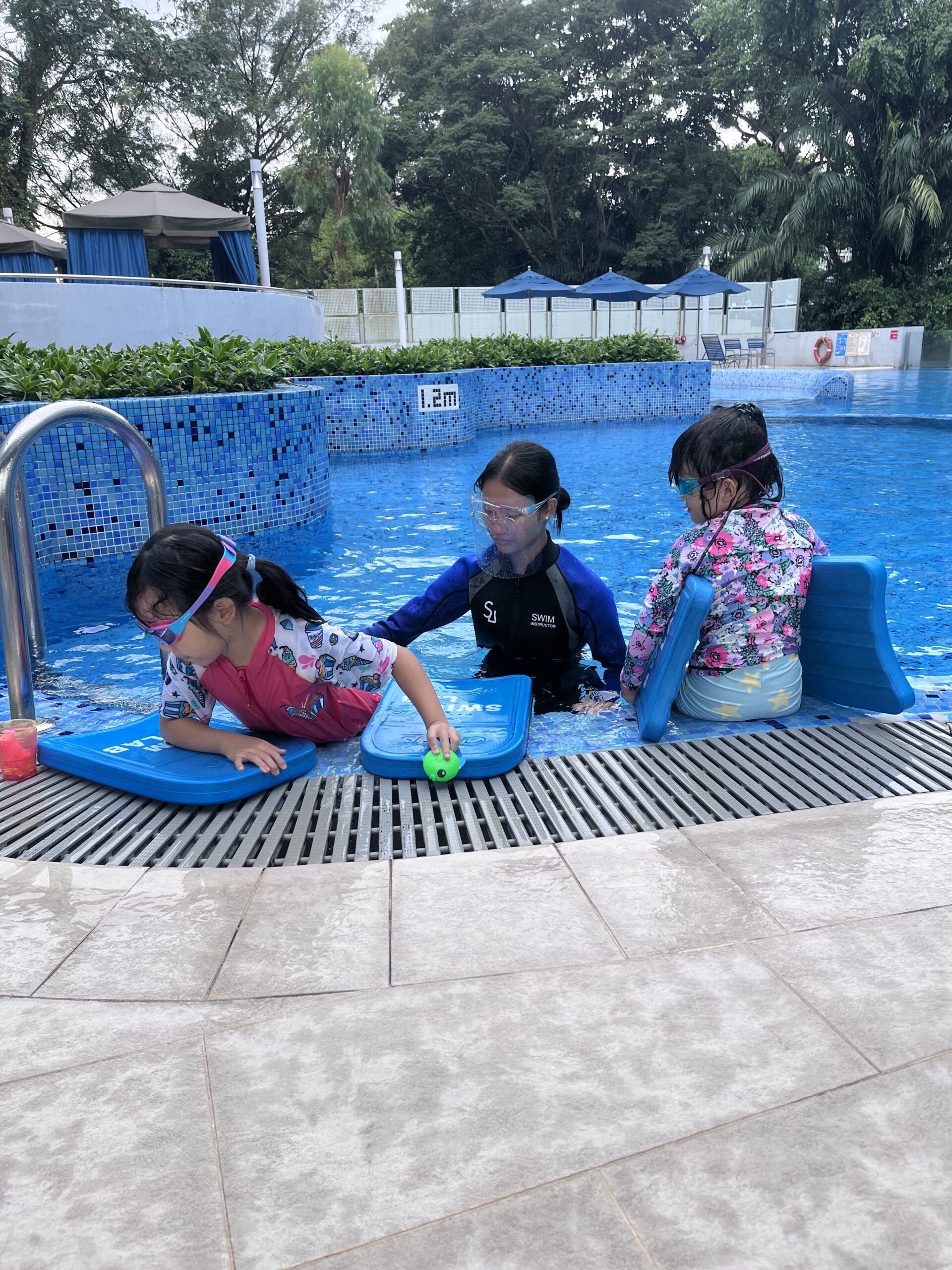Private vs Group Swim Classes: Which is Right for Your Child?
Swimming is not just a recreational activity; it’s a life skill. For children, learning to swim can be both an exciting adventure and a crucial safety measure. In this article, we will delve into the two primary formats of swimming lessons available: private and group classes. By understanding the pros and cons of each, parents can make an informed decision that best suits their child’s needs.
Why Should Kids Take Up Swimming Classes?
Swimming lessons equip children with a vital life skill: the ability to swim and survive in water. This skill can be a lifesaver in emergency situations involving water, making it imperative for every child to learn.
2 Types of Swimming Classes
Swimming classes come in various formats. Private lessons are typically conducted in condominium pools or private clubs. In contrast, group lessons can be found in both public and private pools. The ratio of coach to students in group lessons often ranges from 1:4 to 1:6, ensuring that each child receives adequate attention.
1. Private Swimming Classes
Private swimming classes come with their own set of advantages. Firstly, the one-to-one sessions are particularly beneficial for swimmers who require a more tailored approach or for those who find it challenging to focus in group settings. Secondly, if a child has a pronounced fear of water, the undivided attention from the coach ensures they remain calm and reassured throughout the lesson, reducing the chances of any accidents. Lastly, for children who prefer not to be under the scrutiny of their peers, private lessons can be an excellent way to progress at their own pace. The coach can focus on specific areas that the child might be struggling with, ensuring they only have to meet the expectations of one person.
However, private lessons are not without their drawbacks. They tend to be more expensive due to the individualised attention. Moreover, for children who thrive in the company of their peers, private lessons might seem less engaging. Additionally, with only one student, it can sometimes be a challenge for the coach to keep the session lively and engaging throughout.
So, who are private lessons most suitable for? They are ideal for children with a fear of water, those who have had past traumatic experiences, or kids who are generally shy or anxious in group settings. They’re also beneficial for children with special needs, those who require a flexible schedule, or kids who need more focused coaching on specific swimming aspects.
To summarise, here’s a quick comparison of the advantages and disadvantages of Private Swimming Classes:
Advantages of Private Swimming Classes:
- Personalised Attention: One-to-one sessions are particularly beneficial for swimmers who require more personalised attention or are easily distracted in group settings.
- Overcoming Water Phobia: For children with a strong fear of water, private lessons can be invaluable. The coach can focus entirely on the child, ensuring they remain calm and safe throughout the lesson.
- Rapid Skill Development: Without the pressure of keeping up with peers, children can progress at their own pace, allowing the coach to address specific areas of improvement.
Disadvantages of Private Swimming Classes:
- Cost: Private lessons come with a higher price tag due to the one-to-one coaching ratio.
- Social Interaction: Sociable children might find one-on-one lessons less engaging without peers.
- Engagement Challenges: Keeping a child engaged throughout a private session can be more challenging for the coach.
Who Private Swimming Classes Are Best Suited For?
- Children with water phobias or past traumatic experiences.
- Shy or anxious children who prefer one-on-one instruction.
- Children with special needs or physical limitations.
- Those who need a flexible schedule or more focused coaching on specific swimming aspects.
2. Group Swimming Classes
Group lessons also come with their distinct advantages. They are generally more affordable than private sessions. The group setting not only allows for interaction with the coach but also with peers, making the experience more enjoyable and reducing the chances of boredom. Even though each student might get less individual attention from the coach, the collective energy of the group can be motivating. Students often find they learn from each other, making the entire process feel less like work and more like fun.
However, a potential downside to group lessons is that coaches might sometimes need to generalise their lesson plans to cater to the varied abilities within the group.
Group lessons are best suited for children who enjoy social interactions and those who benefit from peer motivation. They’re also ideal for kids looking to make new friends, those interested in team sports, or children who learn effectively by observing their peers. If you’re considering group swimming lessons, The Swim Lab provides a conducive environment that fosters both learning and fun. Our expert coaches ensure that every child benefits from the group setting while also addressing individual needs. Dive into a world of interactive learning with us today.
To summarise, here’s a quick comparison of the advantages and disadvantages of Group Swimming Classes:
Advantages of Group Swimming Classes:
- Affordability: Group lessons are more budget-friendly than private sessions.
- Social Interaction: Children can interact with both the coach and their peers, making lessons more enjoyable and reducing the chances of boredom.
- Motivation Through Peer Learning: Even though individual coaching time might be shorter, the group setting often fosters a motivating environment where children learn from and support each other.
Disadvantages of Group Swimming Classes:
- Generalised Lesson Plans: With a diverse group, coaches might need to adopt a more general approach to cater to varying abilities.
Who Group Swimming Classes Are Best Suited For?
- Social butterflies who thrive in group settings.
- Children who gain motivation from their peers.
- Those looking to develop teamwork skills or participate in team swimming activities.
- Kids who learn effectively by observing their peers.
Cost Comparison Between Private And Group Swimming Classes
The cost of swimming lessons can vary based on whether they are private or group sessions. For instance, while a private lesson might be priced higher due to the personalised attention, group lessons, with their shared costs, tend to be more budget-friendly. However, other factors, such as the experience of the instructor and the size of the class, can also influence the cost.
How to Choose Between Private Or Group Swimming Classes?
When deciding between private and group swim classes, several factors come into play. Consider the age of the child, their skill level, their personality, and of course, your budget. A trial lesson can be a great way to gauge which format your child prefers. It’s also beneficial to discuss your child’s goals with potential swimming instructors to ensure you’re making the best choice for their needs.
Here’s a quick TLDR of the pointers:
4 Considerations When Choosing:
- Age: Younger children might benefit more from the individual attention in private lessons.
- Skill Level: Beginners might prefer the pace of private lessons, while intermediate swimmers could thrive in group settings.
- Child’s Personality: Consider your child’s temperament and comfort level.
- Budget: Group lessons are generally more affordable than private ones.
2 Tips for Making the Right Choice:
- Consider a trial lesson to gauge your child’s comfort and preference.
- Discuss your child’s goals with potential instructors to find the best fit.
Conclusion
Whether you opt for private or group swimming lessons, the primary goal remains the same: ensuring your child learns to swim safely and confidently. By weighing the advantages and disadvantages of each format and considering your child’s unique needs, you can find the perfect swimming class for them. Remember, the best choice is one that makes your child feel comfortable, motivated, and eager to dive in!


